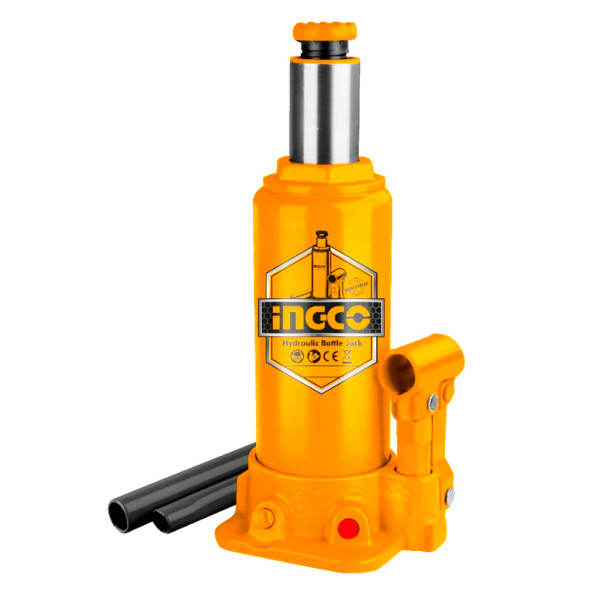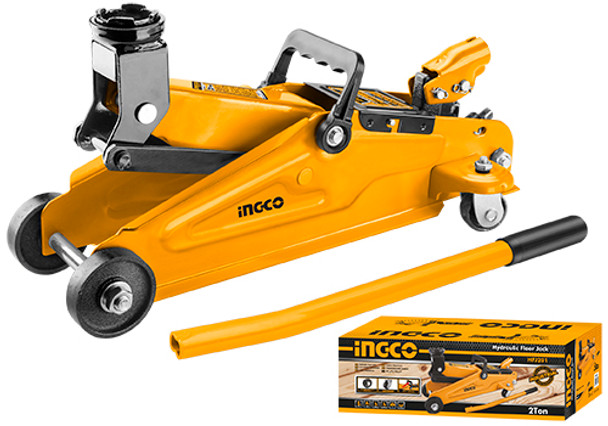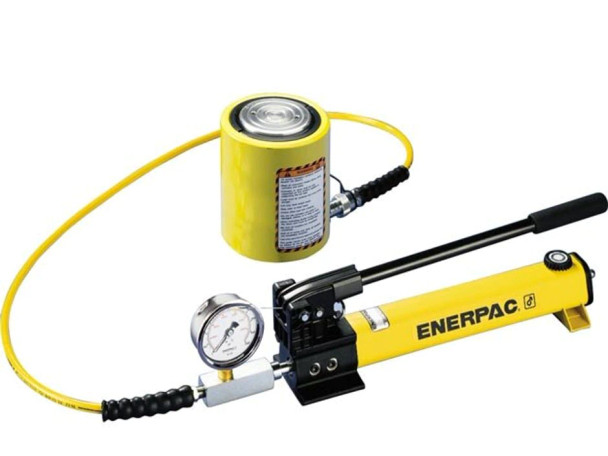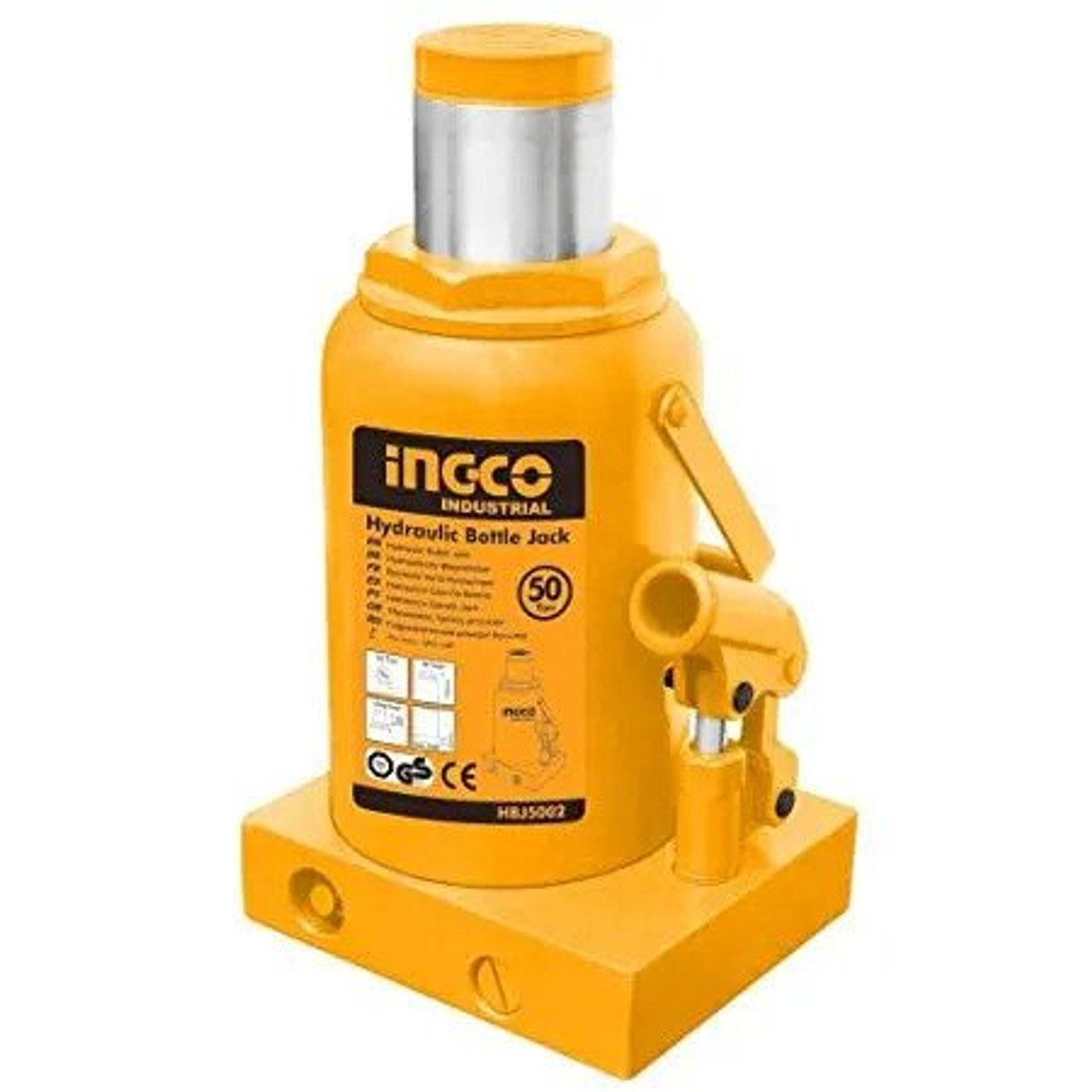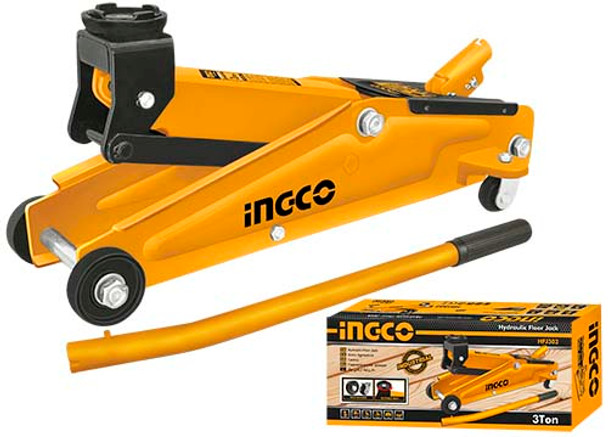How to Select the Best Hydraulic Jack for Industrial Use
Key Takeaway
- Capacity Matters: Ensure the jack can handle the maximum weight you'll be lifting.
- Type Selection: Choose between floor jacks, bottle jacks, or scissor jacks based on your lifting needs.
- Height Requirements: Check the lifting height to accommodate your specific applications.
- Durability and Build Quality: Look for jacks made from high-quality materials for long-term use
Introduction to Hydraulic Jacks
Hydraulic jacks play a critical role in many industrial applications, providing the necessary lifting power to raise heavy machinery and equipment with minimal effort. Whether it's in manufacturing plants, construction sites, or automotive workshops, hydraulic jacks are indispensable tools.
Selecting the best hydraulic jack for industrial use requires careful consideration of factors like load capacity, height, and type. For example, if you need to lift heavy machinery or vehicles, jacks like the INGCO Hydraulic Bottle Jack 12 Ton (HBJ1202) and INGCO Hydraulic Bottle Jack 20 Ton (HBJ2002) offer robust lifting capacities suited for industrial needs. If you need even more power, the INGCO Hydraulic Bottle Jack 50 Ton (HBJ5002) is designed for extremely heavy-duty applications.
The Hydraulic Floor Jack 2 Ton INGCO (HKJ201) and Hydraulic Floor Jack 3 Ton INGCO (HFJ302) are excellent for lower capacity and more frequent lifting tasks. Consider the height requirements and safety features, such as overload protection, to ensure optimal performance and safety in your operations.
This guide explores the various types of hydraulic jacks, factors to consider when making a selection, and top product recommendations for industrial settings.
INGCO Hydraulic bottle jack 12Ton (HBJ1202)
Types of Hydraulic Jacks for Industrial Use
Hydraulic jacks come in several types, each designed for specific industrial tasks. Understanding the different types is the first step in making an informed choice:
1. Bottle Jacks
Bottle jacks are compact and sturdy, designed for lifting heavy loads vertically. These jacks are often used in construction, mining, and heavy vehicle maintenance. Their design allows for a high lifting range but is best suited for short and stable surfaces.
2. Floor Jacks
Floor jacks are larger and more mobile than bottle jacks. Equipped with wheels, they are ideal for lifting heavy machinery and vehicles in repair shops or factories. Their long arms provide better reach and precise lifting capabilities.
3. Trolley Jacks
Trolley jacks are a variation of floor jacks but are even more portable and easy to maneuver. Their broad base offers stability, making them perfect for environments where heavy loads need frequent moving.
4. Pneumatic Jacks
These jacks use compressed air for lifting and are best suited for industrial applications requiring quick and powerful lifting. Pneumatic jacks are commonly found in environments where speed and efficiency are key, such as in shipyards and industrial assembly lines.
INGCO Hydraulic Floor Jack HFJ201
Key Factors to Consider When Choosing a Hydraulic Jack
When selecting a hydraulic jack for industrial use, several factors must be considered to ensure the equipment is fit for the intended purpose:
1. Load Capacity
Load capacity is perhaps the most crucial factor when selecting a hydraulic jack. Industrial applications often involve heavy machinery, so it’s vital to choose a jack that can handle the weight safely. Always ensure that the jack’s rated capacity exceeds the maximum load it will lift.
2. Lifting Height
Different projects require different lifting heights. A jack with insufficient height will be inadequate for high-clearance tasks, while one with excessive height may become unstable. Choose a jack that provides the optimal lifting range for your specific industrial needs.
3. Durability and Build Quality
Hydraulic jacks used in industrial settings are subjected to rigorous wear and tear. Look for jacks made from heavy-duty materials such as steel or alloy, which offer durability and long-term reliability.
4. Portability
If the jack needs to be moved frequently, portability is key. Features like wheels, handles, and compact designs can make moving the jack around the worksite easier. Trolley jacks, for instance, are popular for their mobility.
5. Safety Features
Industrial applications demand heightened safety measures. Hydraulic jacks should come equipped with overload protection, safety valves, and locking mechanisms to prevent accidents. These features ensure both the equipment and the operator stay safe during operation.
ENERPAC 50 Ton Hydraulic Cylinder and Hand Pump Set
Top Hydraulic Jack Brands and Product Recommendations
Choosing the right brand for your hydraulic jack can ensure both performance and longevity. Here are some top-recommended hydraulic jack products suitable for industrial use:
1. The Hydraulic Floor Jack 2Ton INGCO HKJ201: This is a durable, heavy-duty lifting tool designed for easy and efficient vehicle maintenance. With a 2-ton lifting capacity, this jack offers stability, smooth operation, and quick lifting, making it ideal for both professional and DIY use. Compact and easy to store, it features a strong steel frame for enhanced durability. Perfect for garages and workshops!
2. The INGCO Hydraulic Bottle Jack 12Ton (HBJ1202): Is a heavy-duty lifting solution designed to tackle the most demanding industrial and automotive tasks. With a powerful 12-ton capacity, this jack is perfect for lifting vehicles, machinery, and other heavy loads with ease and safety. Its durable construction ensures long-lasting performance, while the compact design allows for easy storage and portability. The built-in safety valve provides added security, making it a reliable choice for professionals and DIY enthusiasts alike.
3. The Hydraulic Floor Jack 3Ton INGCO (HFJ302): This is a robust and reliable lifting tool, designed for handling heavier vehicles with ease. With a 3-ton lifting capacity, it provides excellent stability and smooth performance, ideal for professional garages and automotive workshops. Built with a durable steel frame and compact design, it ensures efficient lifting and easy storage, making it perfect for demanding lifting tasks.
4. The INGCO Hydraulic Bottle Jack 50 Ton (HBJ5002): Hydraulic Bottle Jack 50 Ton is a heavy-duty lifting tool designed for substantial loads. With a capacity of 50 tons, it’s perfect for lifting large machinery and vehicles. Built for durability, it features a compact design for easy handling and storage, along with a safety valve for secure operation. Ideal for professionals in construction and automotive settings, this jack is essential for serious lifting tasks.
5. The INGCO Hydraulic Bottle Jack 20 Ton (HBJ2002): Is a reliable lifting solution, perfect for heavy-duty tasks. With a robust capacity of 20 tons, it efficiently lifts vehicles, machinery, and equipment. Its compact design allows for easy portability and storage, while the built-in safety valve ensures secure operation. Ideal for both professional and home use, this hydraulic jack is a must-have for any workshop or garage.
Ingco Hydraulic bottle jack 50 Ton HBJ5002
Maintenance Tips for Hydraulic Jacks
Proper maintenance is crucial for ensuring the long-term reliability and safety of hydraulic jacks. Here are some key tips:
1. Regular Inspection
Inspect your hydraulic jack regularly for signs of wear, damage, or fluid leaks. Any abnormalities should be addressed immediately to prevent accidents or failure during operation.
2. Lubrication
Keep all moving parts well-lubricated to ensure smooth operation. Use high-quality hydraulic fluid to maintain the jack’s performance and prevent internal damage.
3. Fluid Checks and Refill
Hydraulic jacks rely on fluid pressure to function. Regularly check the hydraulic fluid level and refill it when necessary to prevent air from entering the system, which can cause the jack to malfunction.
4. Proper Storage
Store your hydraulic jack in a clean, dry space when not in use. Avoid exposing it to moisture or dirt, as these can lead to rust and other forms of degradation.
5. Load Testing
Periodically test your hydraulic jack under load to ensure it’s functioning correctly. This helps identify any issues before the jack is put to use in high-stress industrial environments.
Common Mistakes to Avoid When Using Hydraulic Jacks
Hydraulic jacks, if not used properly, can pose safety risks. Here are common mistakes to avoid:
1. Exceeding Load Capacity: Always respect the load capacity of the jack. Lifting beyond the rated weight can cause mechanical failure, leading to potential accidents.
2. Incorrect Positioning: Ensure the jack is positioned correctly under the load. Incorrect placement can cause the load to shift, resulting in jack failure or injury.
3. Ignoring Safety Locks: Always engage the jack’s safety locks before working under a load. Failing to do so increases the risk of the jack collapsing.
4. Lack of Proper Maintenance: Neglecting maintenance, such as not refilling hydraulic fluid or lubricating parts, can lead to equipment malfunction and unsafe working conditions.
5. Skipping Pre-Lift Inspection: Before using a hydraulic jack, perform a thorough inspection to ensure it is in good working condition. Skipping this step can lead to accidents during operation.
Hydraulic Floor Jack 3Ton INGCO (HFJ302)
Frequently Asked Questions
1. What is the ideal load capacity for industrial hydraulic jacks?
The ideal load capacity depends on the machinery or equipment you need to lift. Most industrial applications require jacks with a capacity of at least 5 to 20 tons, but for very heavy-duty equipment, you might need jacks that can handle 50 tons or more. Always ensure the jack’s rated capacity exceeds the load weight for safety.
2. Can a bottle jack be used for heavy industrial equipment?
Yes, bottle jacks can be used for heavy industrial equipment as long as they have the appropriate load capacity. Bottle jacks are particularly suitable for lifting heavy loads vertically, making them ideal for applications like vehicle maintenance, construction, and industrial equipment lifting.
3. How do I maintain hydraulic fluid levels in my jack?
To maintain proper fluid levels, check the hydraulic oil reservoir regularly. If the fluid level is low, refill it using high-quality hydraulic oil. It’s essential to follow the manufacturer’s instructions to avoid overfilling or introducing air into the system, which can lead to poor performance.
3. What safety features should I prioritize in a hydraulic jack?
Key safety features include overload protection, which prevents the jack from lifting loads beyond its capacity, and safety locking mechanisms to prevent accidental lowering. These features are critical to ensuring safe operation in industrial environments.
4. How often should I inspect my hydraulic jack for wear and tear?
It’s recommended to inspect your hydraulic jack before each use, especially in industrial settings where the jack is subject to heavy loads. Check for signs of wear, damage, or fluid leaks. Regular maintenance and inspection will ensure the jack operates efficiently and safely.
Related Articles
How to Choose the Right Hydraulic Jack for Your Workshop
Readers also Watched...
Conclusion
Choosing the best hydraulic jack for industrial use requires careful consideration of load capacity, lifting height, durability, and safety features. Investing in a high-quality jack from a trusted brand not only enhances performance but also ensures the safety of both equipment and personnel. Regular maintenance, proper storage, and adherence to load limits are essential to prolong the lifespan of your hydraulic jack and maintain its efficiency in demanding industrial environments.
For high-quality hydraulic jacks suited for industrial applications, visit GZ Industrial Supplies. GZ Industrial Supplies offers a wide range of hydraulic jacks from trusted brands like Masada, Omega, and Torin. Browse through our collection to find the best jack for your lifting needs, and enjoy durable, reliable equipment that ensures safety and performance in your industrial operations. Shop now!


